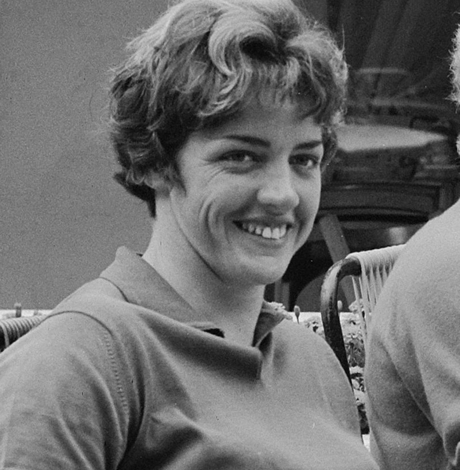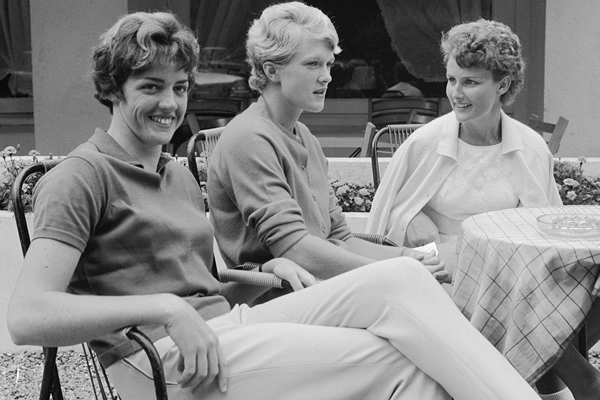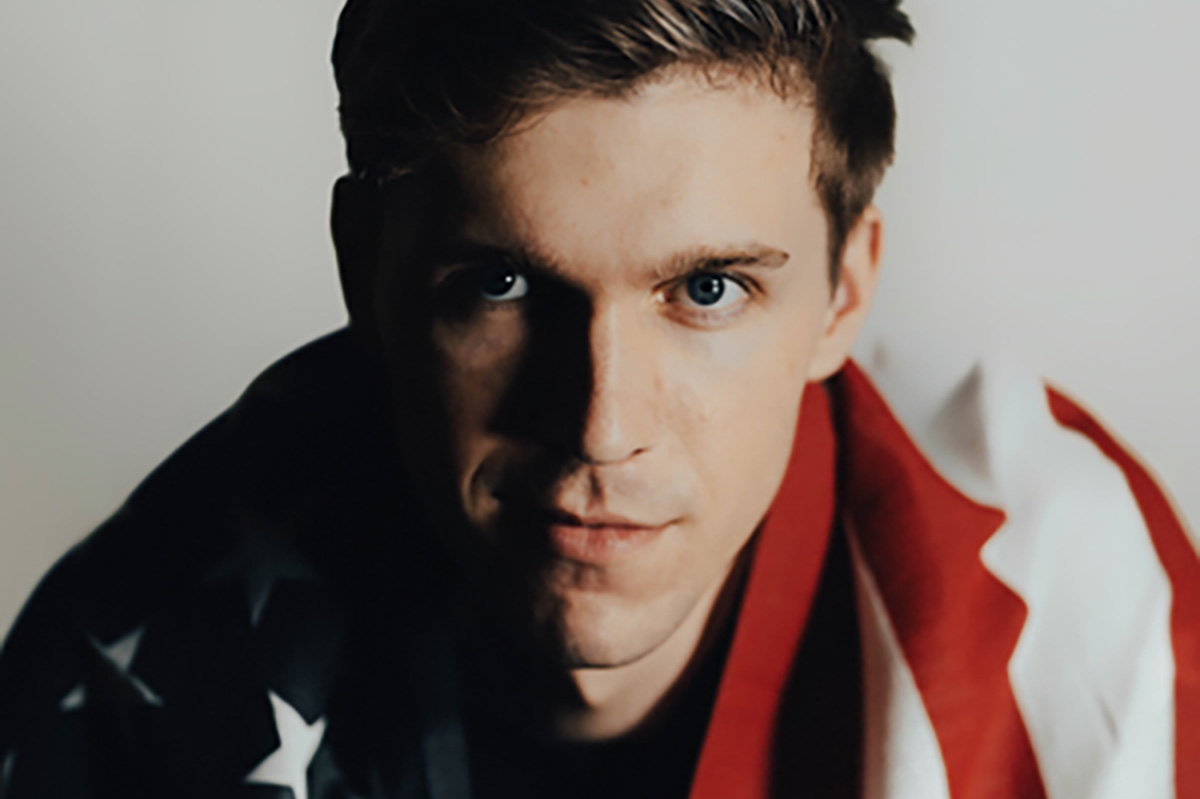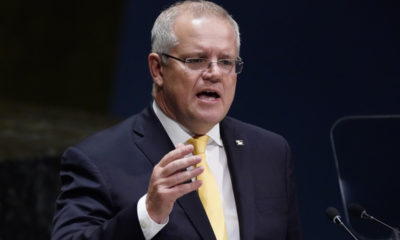Sports
Aussie tennis legend under fire for anti-LGBT comments
Unclear if calls to rename Margaret Court Arena gaining traction


Margaret Court, left, in her ‘70s heyday on the international tennis scene. (Photo by Eric Koch of ANEFO; courtesy of the Dutch National Archives)
Tennis players, rock bands, activists and others in Australia and beyond are calling for the Margaret Court Arena, a tennis and entertainment venue in Melbourne, Victoria, to be renamed because of the controversial, anti-gay views of its namesake.
The arena, built in 1987 (it holds 7,500), is part of the National Tennis Centre at Melbourne Park, itself part of the Melbourne Sports and Entertainment Precinct. It opened in 1988 as Show Court One but was renamed in 2003 after Court, the country’s most successful female tennis player of all time.
Court, 75, was the first woman in the open era (pros/amateurs competing jointly) to win the singles Grand Slam (all four major tennis tournaments in the same calendar year); she was only the second woman in history to do it. With 24 solo wins, 19 women’s doubles wins and 21 mixed doubles titles, she holds a record 64 major titles overall. Several of her records still stand. In 2010, Aussie newspaper the Herald Sun called her “the greatest female tennis player of all time.”
Raised Catholic, Court became a Pentecostal after retiring from tennis in 1977. She was ordained an independent Pentecostal minister in 1991. After founding Margaret Court Ministries, she founded the Victory Life Centre, a Perth-based Pentecostal church, in 1995. She is its senior pastor and broadcasts of her preaching are aired on Australian TV.
She has been an anti-LGBT crusader for years inspiring an effort that began in 2012 for the arena bearing her name to be renamed. Although the issue has been percolating, it reached a boil in May when Court wrote a letter to the West Australian (a Perth newspaper) criticizing Qantas, Australia’s largest domestic airline, for being a corporate supporter of same-sex marriage (currently illegal; a national mail-in vote is in the works) and claiming she would boycott the airline.
In a follow-up interview with Vision Christian Radio, she said lesbian tennis players try to lead young players “into parties,” implying they recruit using tactics similar to Hitler and communism. Of trans issues, she said, “That’s all the devil.”
Out tennis legend Martina Navratilova wrote an open letter to arena owners calling for the change. Navratilova called Court an “amazing tennis player” but also “a racist and a homophobe.”
“How much blood will be on Margaret’s hands because kids will continue to get beaten for being different,” Navratilova wrote. “Too many will die by suicide because of this kind of intolerance, this kind of bashing and yes, this kind of bullying. This is not OK.”
Sigur Ros closed its “Splendour in the Grass 2017” tour in July at the Margaret Court Arena with a light show projection supporting same-sex marriage. The band sold limited edition T-shirts at the concert to raise funds for the marriage effort there. Other acts such as LCD Soundsystem, Grinspoon and Ryan Adams who’ve played there have spoken out against Court.
“I’m not one to get in old people’s faces for being ignorant, but when you come after my family, my friends … you can go fuck yourself,” said LCD Soundsystem singer James Murphy, according to a Junkee concert review.
Tennis Australia praised Court for her “unmatched playing record” but said her “personal views are her own and do not align with Tennis Australia’s values of equality, inclusion and diversity.”
Arena owners have not said if the proposed renaming is being seriously considered but said on Twitter they’re committed to equality.
LGBT Australian activists say the issue has died down some since it broke in May but differ on how significant it is.
Sally Goldner, an activist on trans and bi issues who works with three such agencies, says anti-LGBT rhetoric such as Court’s does have consequences.
“Her trans comments, which didn’t get as much coverage, were pretty extreme,” Goldner said in a Skype interview with the Blade. “To imply that trans people are possessed by the devil, that’s pretty extreme. … She gave several long interviews in mainstream media, yet to my knowledge, at no point were any trans people or families given the same amount of attention. … There’s a lot of issues below the surface beyond just the naming of the arena.”
Anthony Venn-Brown, a former Pentecostal Australian minister who left that ilk of Christianity after coming out at age 40, says that branch of the Christian faith is flourishing in Australia. Though Branch is independent, Venn-Brown says the internationally known Hillsong movement is theologically similar and “has become the largest, fastest-growing branch of Christianity in Australia.”
Venn-Brown says LGBT activists should have simply ignored Court.
“If we would have just let it go, it would have been of no consequence. … She doesn’t have a huge following, she’s not incredibly popular, her church is not huge and she’s getting to be quite old,” he said via Skype. “People are so quick to call for boycotts and names to be changed. It seems to me at times to be playground behavior. … Can’t we just take a deep breath and chill?”
Others disagree.
Filmmaker and clinical psychologist Dee Mosbacher, whose 2009 documentary “Training Rules” exposed the anti-gay policies of former Pennsylvania State University women’s basketball head coach Rene Portland, says homophobia exacts a toll.
“I know well the pain that’s caused by touting someone who is an out and proud homophobe like Rene Portland,” Mossbacher, a lesbian, says. “Some of her players thought about suicide, some felt like their whole lives were wrecked, they had symptoms of PTSD. It had a visceral effect on these women. Some of them hadn’t seen or heard anything about her for decades but it still had a tremendous effect on them. … It’s like a counter to the It Gets Better program. Holding up someone like Margaret Court as a hero is like saying it gets worse. If you allow these people to be out there with their homophobia, you’re saying it’s OK and you’re colluding with them and enabling it.”
Goldner says calls to LGBT support services “skyrocket” when anti-gay views are heavily covered in the news.
“We’ve got plenty of evidence of that,” says Goldner, who’s transgender.
She says the issue needs to be kept in perspective, though.
“We need to keep our eyes on the prize, which is full equality legally and socially,” she says. “Is renaming an arena going to do that? I’m not so sure. It can send a message, but I think there might be some more effective things we could be doing in my honest opinion.”
Venn-Brown, who runs an LGBT outreach program called Ambassadors & Bridge Builders International, also says there are “bigger fish we should be frying.”
“Renaming an arena is not gonna change anything except maybe to make some LGBT people feel they’ve beaten somebody,” he says. “There are more important things for us to focus on.”
Navratilova, Court and management of the Margaret Court Arena did not respond to requests for comment.
Mossbacher understands the perspective, but says Court’s “homophobia and bullying should be called out.”
“It’s not like this is a historical thing where she’s some homophobe from the past,” she says. “They’d never hold her up as some kind of hero if she’d made these comments about aboriginal people or people of color or whatever, so I don’t think it’s OK for her to get away with it when it’s against LGBT people.”
Egypt
Iran, Egypt object to playing in Seattle World Cup ‘Pride Match’
Game to take place on June 26

Iran and Egypt have objected to playing in a “Pride Match” that will take place in Seattle during the 2026 World Cup.
The Egyptian Football Association on Tuesday said it told FIFA Secretary General Mattias Grafström in a letter that “it categorically rejects holding any activities related to supporting (homosexuality) during the match between the Egyptian national team and Iran, scheduled to be held in Seattle, USA, on June 26, 2026, in the third round of the group stage of the 2026 World Cup.” Football Federation Islamic Republic of Iran President Mehdi Taj told ISNA, a semi-official Iranian news agency that both his country and Egypt “protested this issue.”
The 2026 World Cup will take place in the U.S., Canada, and Mexico. The draw took place at the Kennedy Center on Dec. 5.
Iran is among the handful of countries in which consensual same-sex sexual relations remain punishable by death.
The State Department’s 2023 human rights report notes that while Egyptian law “did not explicitly criminalize consensual same-sex sexual activity, authorities regularly arrested and prosecuted LGBTQI+ persons on charges including ‘debauchery,’ prostitution, and ‘violating family values.’” Egyptian authorities “also reportedly prosecuted LGBTQI+ individuals for ‘misuse of social media.’”
“This resulted in de facto criminalization of same-sex conduct and identity,” notes the report.
The 2024 human rights report the State Department released earlier this year did not include LGBTQ-specific references.
Soccer has ‘unique power to unite people across borders, cultures, and beliefs’
The June 26 match between Iran and Egypt coincides with Seattle Pride. The Washington Post reported the Seattle FIFA World Cup 2026 Local Organizing Committee decided to hold the “Pride Match” before last week’s draw.
“As the Local Organizing Committee, SeattleFWC26’s role is to prepare our city to host the matches and manage the city experience outside of Seattle Stadium,” said SeattleFWC26 Vice President of Communications Hana Tadesse in a statement the committee sent to the Washington Blade on Wednesday. “SeattleFWC26 is moving forward as planned with our community programming outside the stadium during Pride weekend and throughout the tournament, partnering with LGBTQ+ leaders, artists, and business owners to elevate existing Pride celebrations across Washington.”
“Football has a unique power to unite people across borders, cultures, and beliefs,” added Tadeese. “The Pacific Northwest is home to one of the nation’s largest Iranian-American communities, a thriving Egyptian diaspora, and rich communities representing all nations we’re hosting in Seattle. We’re committed to ensuring all residents and visitors experience the warmth, respect, and dignity that defines our region.”
The 2034 World Cup will take place in Saudi Arabia.
Consensual same-sex sexual relations remain punishable by death in the country. The 2022 World Cup took place in neighboring Qatar, despite concerns over the country’s anti-LGBTQ rights record.
Sports
Gay speedskater racing toward a more inclusive future in sports
Conor McDermott-Mostowy says anti-DEI push is driving away corporate sponsors

LOS ANGELES — As the countdown begins to the February Winter Olympic Games in Milan, Pride House LA is shining a spotlight on queer athletes who are breaking boundaries both on and off the field. Among them is Team USA speedskater Conor McDermott-Mostowy – a fierce competitor and proud member of the queer community. With blistering speed on the ice and a steadfast commitment to equity in sports, Conor is doing so much more than winning medals – he’s redefining what it means to represent one’s country while representing one’s community.
McDermott-Mostowy is one step closer to the 2026 Winter Olympics after winning the recent silver and bronze medals at the U.S. Championships in speedskating. He appeared at a Nov. 1 event presented by Out Athlete Fund/Pride House LA in the organization’s efforts to raise funds to support Conor and other out athletes as they pursue their Olympic dreams in Milan 2026 and beyond.The Blade spoke to the star athlete to talk about resilience, representation, and the legacy he hopes to leave one day.
Blade: Huge congrats, Conor! Winning a World Cup gold is no small feat. Do you feel like this win proved something to the world – or more importantly, to yourself?
McDermott-Mostowy: Winning gold with my team last year was definitely a major goal achieved. That said, the event we won isn’t yet an Olympic event. The races that have had the most profound impact on me actually happened two years ago.
The first was the team pursuit in Obihiro, Japan. I’d always been more of an alternate for that event, since it’s typically raced by skaters who compete in both the 1500m and 5000m. But I’d been itching for the opportunity to race it at the World Cup level. I finally got that chance when a teammate had to pull out at the last minute due to a back issue. We led the race through six of eight laps, ultimately finishing third. While it was a little disappointing to fall out of the lead, I was proud to prove that I could contribute meaningfully and help the team medal.
The second race was later that year in Salt Lake City, my home ice. After competing in Japan, I came down with a lung infection that affected my performance at the next few World Cups. Fortunately, I had time to recover before the North American World Cups and World Championships. At the Salt Lake City World Cup, I was balancing competition with completing my undergraduate degree. I didn’t know what to expect, but I ended up finishing fifth in the 1000m—my highest individual finish ever—and posted a time of 1:06.91. That’s a very significant time in speedskating; only three other Americans have gone under 1:07 in that event, all of whom became world champions. That result felt like a turning point, showing me that an Olympic or World Championship medal wasn’t just a dream—it was within reach.
Blade: This PrideHouse LA event is a huge moment. What does that support from the queer community mean to you?
McDermott-Mostowy: It’s incredibly meaningful. Being queer in Olympic sport can be very isolating, both inside and outside the sport. I barely have time to socialize outside of skating, and relocating to Salt Lake City doesn’t exactly help when it comes to queer community. So having that kind of solidarity and support from the wider LGBTQ+ community really means a lot.
Blade: Do you remember the moment you realized skating could take you all the way to the Olympics?
McDermott-Mostowy: There hasn’t been one single moment. It’s been a series of them. Over the years, I’ve had many races that shattered the limits I thought I had and inspired me to reach higher. That Salt Lake City race was one of them. It made me realize I shouldn’t just aim for the Olympics. I should aim for medals.
Another key moment came in 2018 at my last Junior World Cup, when my teammate and I finished 2nd and 3rd in the mass start. That event is similar to short track but held on a long track. It was my first full year focusing on long track after previously dabbling in it, and we had no expectation of medaling. But after we did, I realized I might actually have a future in this discipline—and that I could be competitive on the world stage. It was a pivotal realization, especially as I was trying to decide whether to continue skating or pursue a traditional college experience.
Blade: What initially drew you to speedskating? How did you get into the sport—and what’s kept you motivated?
McDermott-Mostowy: I grew up on skates. I started at age two and became a strong skater early on. But I never had any interest in hockey or figure skating. One winter, I was skating with my family on the C&O Canal in Washington, D.C., when a guy skated past us on these wild-looking speed skates. I was immediately intrigued. My parents found a local club, which happened to be run by three-time Olympian Nathaniel Mills, and I was hooked.
What’s kept me going is simple: I love it. This isn’t a sport you get rich in. I’ve only earned more than $20,000 a year twice in my career, and you can’t use it to pay for college either. The motivation has to come from within—the pursuit of excellence, the dream of going to the Olympics, and pure love for the sport.
Blade: What’s been your toughest race to date, and what did it teach you?
McDermott-Mostowy: That would be the team pursuit in Japan. I wasn’t expecting to race it and had already competed in a full weekend of events before getting the call. Team pursuit is arguably the toughest event in speedskating. Stepping up without being mentally or physically prepared was a challenge, but I did it. It showed me I could push through, even under extreme circumstances.
Blade: You’ve made headlines not just for your speed, but for your openness. What was it like coming out publicly in the world of elite sport?
McDermott-Mostowy: By the time I was publicly identified as gay, I had already been out to anyone who asked. So “coming out” doesn’t feel like the right term. It wasn’t a big declaration. I had the benefit of growing up seeing openly gay athletes and being part of a supportive community. I never felt the need to hide who I was.
Eventually, as I started achieving more on the ice, people began noticing me and the content I posted, and they put two and two together. When I was asked to speak publicly about being an openly gay athlete in speedskating, I didn’t hesitate.
Blade: What have been the biggest challenges in your career – physically, mentally, or otherwise?
McDermott-Mostowy: Honestly, my entire career has been about overcoming challenges. The two biggest obstacles have been illness and finances.
I’ve dealt with asthma, a norovirus that derailed my chances in 2022, and a fatigue condition last season that affected my performance. These setbacks take a toll. Not just physically, but mentally. When you invest everything into your sport, being forced to pause or scale back is a huge emotional hurdle.
Financially, speedskating is a tough path. Even as a consistent top-20 skater in the world, I’ve only broken $20k twice in a year, and we’re paid for just nine months, even though we train year-round. I’ve leaned on friends and family for support many times just to make ends meet.
Blade: Have you ever been told – explicitly or implicitly – that being openly gay could hurt your chances with sponsors or coaches?
McDermott-Mostowy: Never with coaches. In our sport, selections are based on the clock, not someone’s opinion. My coaches have always been great.
But when it comes to sponsorships, especially over the past year, I’ve noticed a shift. As anti-DEI sentiment grows, brands are backing away from anything that could be seen as “controversial.” Being openly gay seems to fall into that category now. Since most of our income comes from sponsorships, that retreat is deeply felt.
Sports
Trans cyclist’s victory sparks outrage in conservative media
Katheryn Phillips is originally from DC

On the heels of UPenn erasing the record of the first openly transgender NCAA Division I All-American swimmer and the U.S. Supreme Court’s decision to tackle bans on trans student-athletes, right wing media is now all hot and bothered about the latest trans woman who won a cycling championship — even though she competed according to the rules.
On Tuesday, 58-year-old Katheryn Phillips finished first in USA Cycling’s Lyons Masters National Championship race for women aged 55-59, with a time of 1:42:10, according to the official results posted by the organization. The record shows her gender as “F” for female.
One second behind Phillips was Julie Peterson, with a time of 1:42:11 — as were three other cyclists: Mary Beth Grier, Andrea Cherniak-Tyson, and Carolyn Maddox.
Peterson, 57, was so outraged, she told Fox News she refused to stand on the podium in second place next to Phillips. Her story was swiftly shared by the New York Post (also owned by Fox’s parent company News Corp.), the Daily Mail, Breitbart, and other conservative media.
Both Peterson and another competitor are accusing USA Cycling of “hiding” that a transgender woman had registered to race.
“It was hidden from us. Katheryn Phillips, KJ’s name, was not on that list. And I checked it up all the way to the point of closure when we couldn’t register online anymore,” Debbie Milne told Fox.
“If I had known, I wouldn’t have spent thousands of dollars in travel and time off work to come and do a race,” Peterson said. Fox welcomed Milne, 56, who finished seventh on Tuesday, to Fox & Friends Thursday morning.
(Video courtesy of Fox News)
Peterson told Fox she did complain to USA Cycling officials prior to the race. Both Milne and Peterson referred to Phillips as a male, and with “he/him” pronouns.
“To be fair to all humans, if we want to say ‘him’ or ‘her,’ he was born a biological male, that is a fact,” Milne said. “And that is the thing that makes it an unfair advantage. Whatever has happened after that is a whole different topic.”
“I said, ‘I don’t want to race against a man,’ and they quickly scolded me and said ‘Oh, you can’t call him a man,’ and I’m like ‘Well, he is a man,’ so I was quickly scolded and corrected that it is a woman and I don’t even know what to say.”
USA Cycling did not respond to the Washington Blade’s emails requesting comment.
Phillips, who goes by Kate and by “KJ,” is a former rugby player with the D.C. Furies, who stated in the comments of a 2024 article published by Zwift Insider that she was the first out trans athlete in the U.S. to compete under the 2004 International Olympic Committee’s guidelines on trans participation.
“When USA Rugby told me about the IOC decision in 2004, I raised my hand to be included. I experience nothing but joy when I play, ride, and race,” Phillips said.
As the Blade has reported, the International Olympic Committee drastically revised those rules in 2021, and in March, Republican lawmakers in D.C. demanded the IOC ban trans female athletes from women’s sporting events altogether.
The Blade also reached out to Phillips for comment but as of press time we have not received a response. She told Zwift Insider in March 2024 she does not let those who disapprove or spread hate impact her performance or her attitude.
“I am unaffected by dissent. I love, I share joy, I am me, and I have been my authentic self for decades,” she said. It’s been reported Phillips came out in 1999, and told Zwift Insider she considers herself a lifelong cyclist.
“I’ve been on a bike for as long as I can remember,” said Phillips. “As kids, my friends and I rode all over town, we were feral kids; no cell phones, no trackers … we just roamed, and nobody got in trouble or hurt bad enough not to ride home … Scrapes/bruises/cuts were not an issue for us. In my teens, I worked for myself as a court/legal messenger, doing all of the work via my bike until I got a car. Raced BMX as a kiddo (when I mowed lawns to cover the race entry fees), I did MTB stuff (non-racing) and Sprint/Olympic Triathlons in my 30’s, and now I’m racing on Zwift, Road/Gravel, and CX in my 50s.”
In the comments section, Phillips made clear she’s not competing to win.
“I don’t do sports for victory, I do it because like many other women, I am an athlete to my core,” she said. “Unlike some, I am not there to WIN, I am there to do my best with the competitors and teammates I have around me trying to do the same…we are in it for the experience. I rejoice in their wins, and a lot of joy is reflected back to me when I have a good day.”
-

 Sponsored5 days ago
Sponsored5 days agoSafer Ways to Pay for Online Performances and Queer Events
-

 District of Columbia4 days ago
District of Columbia4 days agoTwo pioneering gay journalists to speak at Thursday event
-

 Colombia3 days ago
Colombia3 days agoBlade travels to Colombia after U.S. forces seize Maduro in Venezuela
-

 a&e features4 days ago
a&e features4 days agoQueer highlights of the 2026 Critics Choice Awards: Aunt Gladys, that ‘Heated Rivalry’ shoutout and more




















